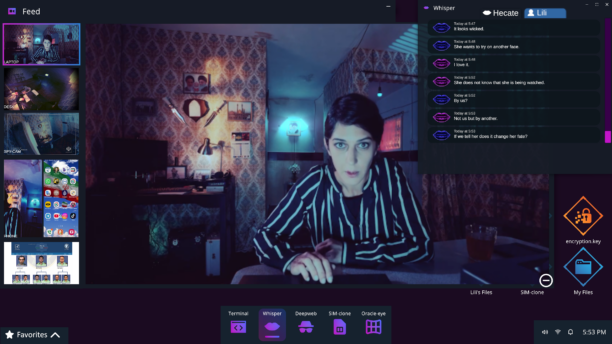


This research investigates how artificial intelligence can be reimagined as a collaborator and co-author in storytelling, shifting the boundaries of authorship, agency, and ethics in narrative creation. The focus is on exploring how AI can function not only as a behind-the-scenes production tool, but as a visible, integral system that audiences must engage with—mirroring real-world struggles around surveillance, censorship, and contested truth. The study asks: What does it mean to author in an age when AI systems answer back, evolve with us, and sometimes surprise us? How can artists reclaim AI as a medium for radical storytelling, resistance, and reimagination, rather than automation?
To ground these questions, the project draws on LILI, an interactive, neo-noir adaptation of Macbeth set in contemporary Iran. Designed as both a narrative game and live-action hybrid, LILI integrates AI directly into its mechanics: players must learn, manipulate, and question AI systems—deepfakes, verification tools, and algorithmic filters—to progress through the story. In doing so, LILI not only illuminates urgent sociopolitical realities at the intersection of surveillance, censorship, and gender oppression, but also prototypes frameworks for ethical, expressive, and politically engaged AI-driven narratives.
The goal of this work is to contribute to a broader research conversation and provide practical models for creators, game designers, and media artists seeking to integrate AI into their practice in ways that are both imaginative and ethically grounded.